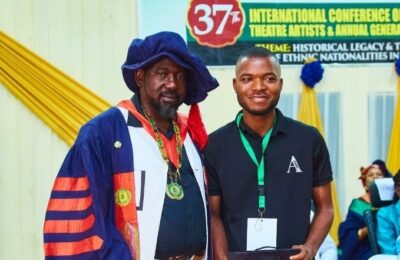In the midst of miscarriage and abortion debate, a fascinating phenomenon has gone largely unnoticed: the lingering presence of fetal cells within a mother’s body, long after the pregnancy has ended. This phenomenon is known as microchimerism.
This means that any woman who becomes pregnant even if that woman suffers miscarriage, even if the woman typically makes the wrong choice and gets rid of the life within her through an abortion or if the baby comes to full term, cells are exchanged between the mother and the child and those cells will remain in her body for the rest of her life.
In the 1970s, Scientists made a groundbreaking discovery about how cells from the foetus can migrate into the mother’s bloodstream and organs during pregnancy. These cells known as fetal microchimerism can remain in the mother’s body for decades after the pregnancy has ended or terminated. This revelation challenged our understanding of the maternal-fetal bond, revealing a lasting and profound connection between mother and child.
Research has shown that these lingering fetal cells can have a significant impact on the mother’s health. In some cases, they can even influence the development of new tissues and organs within the mother’s body. Scientists discovered that when a woman who has become pregnant before gets sick or has a disease, they noticed that certain cluster of cells from her body goes to the I’ll area in her body and seeking to fight it off to make her well, and these cells are the cells of her foetus. These cells run to the defense of the mother even if the child is no longer on earth either through miscarriage or through an abortion, the child is fighting to save her life.
These fetal cells can adapt and integrate into the mother’s body, taking on range of functions. Research has shown that they can support the immune system, aid in tissues repair of the mother’s body for a lifetime
Microchimerism raises important questions about the long term effect of abortion and miscarriage on women’s health. What does this mean for a woman who have undergone abortion?, How does this cells affect their health and well-being?. Some women seek answers to these questions either consciously or sub-consciously while going through a miscarriage or abortion. But the reality is that the maternal-fetal bond is something that will last a lifetime for a mother. This discovery has made us to understand that baby never actually go anywhere, that is, there is an unseen connection as far as you have gotten pregnant before, the maternal-fetal connection stays with you for a lifetime.
However, for many women, the discovery of microchimerism can be emotionally challenging. Knowing that a part of their feotus remains within their body, long after the pregnancy has ended can lead to feeling of guilt, regret, nostalgia or closure. “It was like a punch to the guy, because I thought I had closed that chapter of my life but now I realize that a part of my child is still with me.” Shares Sarah, a young girl who terminated her pregnancy at three months. She described the experience as a stark reminder that a chapter of her life which she thought was closed is, in fact, still very much open.
The lingering presence of her child’s cells serve as a bittersweet reminder of the life she once carried, leaving her to battle with the weight of her decision. As well as the enduring bond she shares with her child and the moral and ethical implications forcing her to confront the deep-seated emotions underneath. The emotional impact of microchimerism can be profound, forcing women to re-examine their past and reconcile their feelings about motherhood, identity and the intricate web of life.
On the other hand, microchimerism also offers a new perspective on the maternal-fetal bond, acknowledging that a connection remains even after a miscarriage, birth or abortion. “It has helped me to see that my abortion was not just a termination of a pregnancy as I thought, but a connection that I will always carry with me.” Shares Sarah.
This discovery also leads to spiritual or philosophical questions about the nature of life, identity and the maternal-fetal bond. “It has made me question what I was taught and what I know about being a mother.” Says Racheal, a mother of two children. “Because I have come to realize that it’s not just about giving birth, it is about the connection we have with our children, even if they are not physically here and it’s a connection I will always carry with me. I think that maternity has its blessing.” Racheal shares further.
Microchimerism is a fascinating phenomenon that challenges our assumptions about maternal-fetal bond and women’s health. While it may raise complex emotions and concerns, it also offers a new perspective on the connection between mother and child. This knowledge can facilitate closure and healing for some women allowing them to move forward in life, especially those women who had miscarriages before or has lost a child
Understanding microchimerism can empower women to make informed decisions about their reproductive decision and their health and well-being.
– Rasheedah Inuwa is a 300L student of department of Mass Communication, Prince Abubakar Audu University Anyigba (PAAU)




